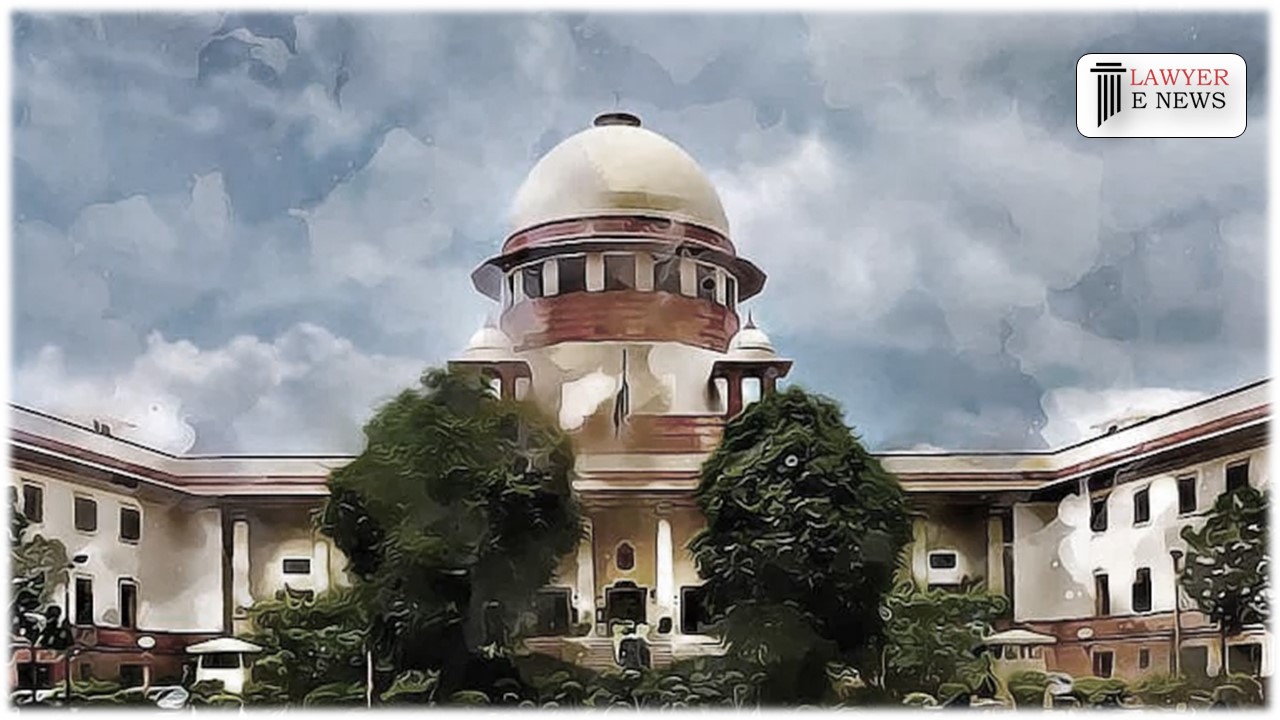-
by sayum
14 February 2026 2:22 PM



Emphasizes the necessity for an effective hearing process and the implications of non-compliance in the acquisition process.
In a landmark judgment, the Supreme Court of India has delivered a crucial verdict on the procedural requirements under Section 5A of the Land Acquisition Act, 1894. The Court stressed the importance of ensuring a fair hearing for landowners before the acquisition of their property and clarified the implications of non-compliance with these procedures. This decision stems from a series of appeals involving the New Okhla Industrial Development Authority (NOIDA) and multiple landowners contesting the acquisition of their lands.
The case revolves around the acquisition of 81.819 hectares of land by NOIDA. The acquisition process was initiated with a notification under Section 4 of the 1894 Act on 28th September 2013, followed by a declaration under Section 6 on 14th January 2015. Several landowners, led by Darshan Lal Bohra, objected to the acquisition, arguing that their objections were not properly considered by the Collector, and the hearing process mandated under Section 5A was not effectively conducted.
The Supreme Court scrutinized the compliance with Section 5A, which mandates a hearing for landowners to object to the acquisition of their land. The Court reiterated that this provision embodies the principle of "audi alteram partem" (hear the other side) and serves as a crucial safeguard for landowners.
"Section 5A mandates an effective hearing, not an empty formality," the bench emphasized, noting that the failure to provide an advance notice of hearing to the objectors is sufficient to infer non-compliance with the provision.
The Court found that the High Court had previously erred in concluding that the landowners were deprived of the opportunity to present evidence. Despite the objections being submitted in writing, the High Court held that further oral hearings were not necessary. However, the Supreme Court clarified that an effective opportunity of hearing must be provided, including personal hearings if requested.
The Supreme Court also addressed the public purpose behind the acquisition and the subsequent developments by NOIDA. It was argued that significant investments had been made in the development projects, and annulling the acquisition process at this stage would defeat the bona fide public purpose. The Court balanced the individual rights of the landowners with the larger public interest, acknowledging the substantial compliance already achieved in the acquisition process.
The judgment delved into the legal reasoning behind the compliance requirements under Section 5A. The Court noted that the mandatory procedure includes serving advance notice to objectors, holding a fair hearing, and considering the objections meticulously. The failure to adhere to these procedures can render the acquisition process void.
"The statutory presumption under Section 114 of the Indian Evidence Act applies where notices are served, and records are duly maintained," the bench observed, reinforcing the procedural rigor required in land acquisition cases.
Justice Surya Kant remarked, "The hearing under Section 5A must be an effective opportunity and not an empty formality. The failure to serve notice would be sufficient to infer defiance of Section 5A, rendering the acquisition process liable to be annulled".
The Supreme Court's decision in this case underscores the judiciary's commitment to upholding procedural fairness in land acquisition processes. By affirming the importance of a fair and effective hearing under Section 5A, the judgment ensures that landowners' rights are protected against arbitrary state action. This ruling is expected to have far-reaching implications for future land acquisition cases, reinforcing the legal framework governing eminent domain and safeguarding private property rights.
Date of Decision: 10th July 2024
New Okhla Industrial Development Authority vs. Darshan Lal Bohra & Ors.
